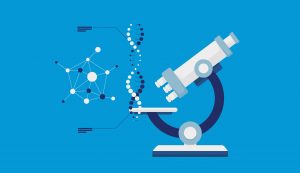Postmortem brain study compares immune-related gene alterations across six brain disorders including autism
By Azra Jaferi, Ph.D.
 Synopsis
Synopsis
A study of gene activity data from over 2,000 postmortem brain samples identified alterations in immune system–related genes that are specific to autism and other changes that are shared across brain disorders.
Introduction
The immune system and the brain have a close relationship. Cells of the immune system help the brain protect and repair itself following infection, injury, and stress1, and also participate in brain development2. However, excessive activation of the immune response in the brain (a process known as neuroinflammation) is now known to contribute to a variety of brain disorders. These include neurodevelopmental conditions such as autism spectrum disorder (ASD)3, and psychiatric disorders such as schizophrenia (SCZ), bipolar disorder (BD), and major depressive disorder (MDD),4 as well as neurological diseases such as Parkinson’s disease and Alzheimer’s disease5.
Gene activity related to immune responses is altered in the brains of patients with these disorders6, but the extent of these changes had not yet been directly compared across disorders. In a recent study7 led by Chunyu Liu at SUNY Upstate Medical University and Chao Chen at Central South University, gene activity (expression) data from over 2,000 postmortem brain samples identified alterations in immune-related genes that are shared across brain disorders versus those that are specific to each disorder.
Methodology
Liu, Chen, and their colleagues analyzed existing gene-expression data obtained from Gene Expression Omnibus (GEO), ArrayExpress, or directly from previous studies. Microarray and RNA sequencing analysis of these data allowed identification of changes in the entire collection of cellular RNA sequences across 2,467 postmortem brain samples from patients with one of six brain disorders: ASD, SCZ, BD, MDD, AD, and PD, as well as from individuals without known psychiatric conditions. They selected 1,275 immune-related genes known to be linked to neuroinflammation and then examined their expression across the six brain disorders.
Findings and implications for autism
Over 60% of the immune-related genes examined in this study showed significantly altered expression in at least one of the six brain-related conditions. The researchers identified which of these changes were shared across conditions as well as those that were specific to only certain conditions. Among those that were shared, dysfunction of the innate immune system (the system that acts to rapidly attack viruses) was the common denominator for all six brain disorders. Innate immune responses normally act as a general first line of defense against fighting infections. Alterations in innate immune–related genes across all six disorders suggest that immune dysfunction and neuroinflammation may be a universal response across neurological and psychiatric disorders as well as autism. Particularly relevant for brain disease risk was the finding that the altered immune system interacts with biological pathways and networks related to brain functioning. Whether immune dysfunction “causes” the psychiatric conditions was not shown, but the results are highly suggestive that immune-related alterations may contribute to the risk of brain disorders.
Among the changes in immune-related genes that were disorder specific, three were detected for ASD, implying distinct biological processes. Unexpectedly, the expression profiles of innate immune–related genes observed in ASD were more similar to those seen in neurological diseases (AD and PD) than in psychiatric disorders (SCZ, BD, and MDD). Further, immune-related genes were found to change to a greater extent in ASD, AD, and PD than in SZC, BD, and MDD. These findings suggest that immune gene dysfunction may be more severe in ASD and other neurological diseases than in other psychiatric disorders, and that a subset of brain disorders might benefit from immune-related treatment strategies. Interestingly, when the researchers compared male and female subgroups, significant sex differences were detected in ASD, with immune-related genes showing a larger magnitude of change in males than in females.
In sum, this study on the brain gene expression of six neurological and psychiatric disorders offers important insights on both shared and specific changes in genes related to immunity, and on how those changes might contribute to the risk of brain-based disorders such as ASD.
References
- Dantzer R. Physiol Rev. 98, 477-504 (2018) PubMed
- Morimoto K., Nakajima K. Front Neurosci. 13 (2019) PubMed
- Meltzer A., Van de Water J. Neuropsychopharm. 42, 284-298 (2017) PubMed
- Yuan N., et al. Transl Psychiatry. 9, 233 (2019) PubMed
- Webers A., et al. Immunol Cell Biol. 98, 28-41 (2020) PubMed
- Gandal M.J., et al. Science. 362, eaat8127 (2018) PubMed
- Chen Y., et al. Mol Psychiatry. (2022) Online ahead of print. PubMed